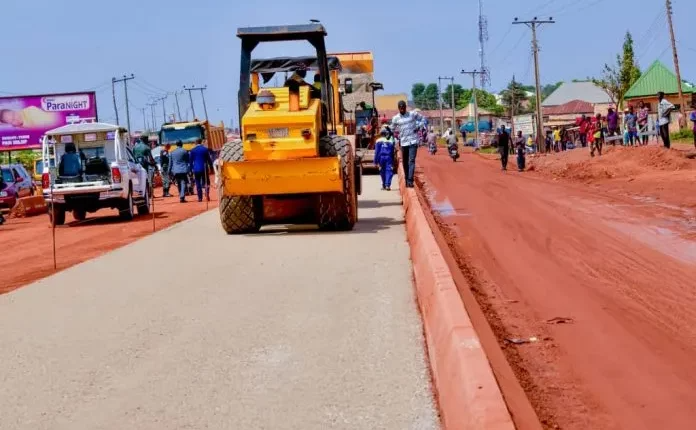Industrial Valuation Consultant Engr. Adeniyi Samuel has raised concerns over the political motivations behind Nigeria’s ongoing road construction projects, describing them as misaligned with the country’s current socio-economic priorities.
This remark comes amid growing calls for homegrown solutions to Nigeria’s economic challenges and increased investment in sectors with high employment potential.
Addressing newsmen yesterday in Abuja, with the theme; “State of The Nation,” Samuel argued that the proliferation of large-scale road infrastructure projects is a colonial-era economic strategy that continues to serve foreign interests rather than address Nigeria’s pressing needs.
“Unfortunately, most Nigerians are unaware of the politics behind these road constructions,” he said.
“We don’t need them—not in the way they’re being done today.
These ideas were inherited from colonial masters and sold to our policymakers, including Dr Ngozi Okonjo-Iweala, with the assumption that such capital-intensive projects would generate employment. But the reality is that they mostly enrich the Western world.”
He alleged that the machinery and expertise involved in the projects are largely imported, benefitting foreign contractors while providing minimal job opportunities for Nigerians—especially the unskilled population.
“Our priorities should be massive employment creation for both skilled and unskilled workers,” he said. “All current road projects are politically motivated and designed to benefit the elite. What Nigeria truly needs now is a return to agriculture—both cultivation and processing.”
He further called for a national shift toward establishing modern plantations across the country, leveraging Nigeria’s abundant manpower to produce key agricultural commodities such as beans, maize, yams, cassava, soya beans, groundnut, cashew nuts, cotton, palm oil, sugarcane, rubber, and cocoa.
He urged the federal government to utilise the existing agricultural mapping developed by the Ministry of Agriculture to identify competitive and profitable locations for crop cultivation.
“Nigeria can do this,” he stressed. “We must stop allowing the International Monetary Fund (IMF) and the World Bank to dictate our development agenda. Their policies are not progressive for us. As a leading nation in Africa, Nigeria must wake up. Enough of this slumber—we need to start doing new things.”











